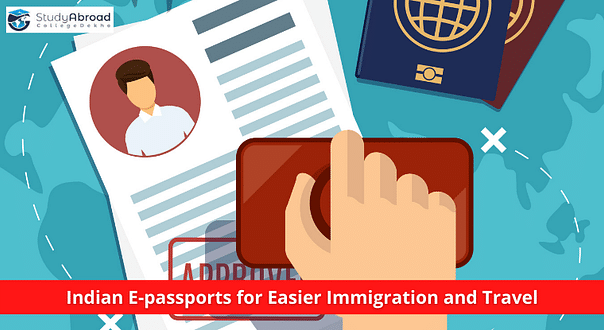E-passports, or digital passports, seems to be the way of the future and the Indian Government seems to acknowledge the fact as well. During the Union Budget 2022-23, Finance Minister Nirmala Sitharaman stated e-passports with embedded chips and futuristic technology will be rolled out in 2022-23 to enhance the convenience for citizens in their overseas travel.
She further pointed out that the digital passports will include advanced security features, which considering the governments push for digitisation of citizen-based services, adding passports to the list was expected, news reports state.
According to reports, the number of Indian students travelling abroad for higher education is expected to reach 1.8 million by 2024. While it is yet to be seen if e-passports will facilitate quicker processing times, it is still expected to smoothen out international travel and immigration. Further, the entire personal details of a citizen that are digitally signed are expected to be secured in a chip.
Also Read: Canadian Immigration Minister Highlights Steps Taken to Improve Immigration
With countries like Canada and others around the globe also transitioning to mostly only services for immigration and travel services, the digitisation of Indian passports comes at the perfect time. As several other countries like the UK, Canada and Germany see sharp increases in the inflow of international students, especially from India, digital passports possess great opportunities to facilitate quicker immigration processes times.
Also Read: UK: Drop in EU Applications via UCAS Witnessed in 2021 UCAS End-Cycle Report
Moreover, countries like the UK and USA now beginning to focus on attracting more and more international students to their respective universities, easier immigration processes and quicker access to documentation.
Source: The Hindustan Times edexlive.com
Apply to Your Dream University and Course with Us Now!























